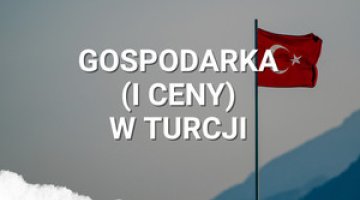Israel apologises to Turkey
During a telephone call on 22 March, Israel’s prime minister, Benjamin Netanyahu, apologised to Turkey’s prime minister, Recep Tayyip Erdoğan, for the raid carried out by Israeli commandos on a ship carrying humanitarian aid to the Gaza Strip in May 2010. Nine Turkish citizens were killed as a consequence of the raid. Netanyahu promised that damages will be paid to the victims’ families and expressed that he is prepared to co-operate with Turkey to improve the humanitarian situation in the Gaza Strip.He also declared his willingness to re-establish bilateral relations, which Ankara had frozen following the raid. According to press commentaries, Prime Minister Netanyahu was encouraged to make this gesture by the US president, Barack Obama, who was visiting Israel at that time.
For three years, Turkey has insisted that an apology, the payment of damages, and the lifting of the embargo on the Gaza Strip are conditions which need to be met before it unfreezes its relations with Israel. During the conversation, Erdoğan accepted the apology and announced he was ready to re-establish relations, provided that the remaining conditions are met. In the coming days, diplomats from Turkey and Israel are to develop detailed rules for the payment of the damages. Prime Minister Erdoğan said he would visit the Gaza Strip in April to inspect the lifting of Israel’s embargo.
Commentary
- Receiving an official apology from Israel is a significant diplomatic success for Turkey. It has strengthened its image of a state whose level of importance for the balance of forces in the Middle East is so high that such regional and global powers as Israel and the United States are currying its favour. Turkey gains an image of one the only country in the Middle East capable of winning a dispute with Israel. This success also strengthens the position of the ruling AKP party on the domestic political scene.
- The normalisation of relations between Ankara and Tel Aviv will pave the way to a resumption of tactical co-operation in regional security issues. One example of this is the exchange of information on the civil war in Syria. Potential co-operation would probably be more important for Israel, which has found itself in dangerous regional isolation as a consequence of frozen relations with Turkey, the change of government in Egypt, the civil war in Syria and the expanding influence of Iran.
- Turkey is likely to use Israel’s recent gesture not so much to improve bilateral relations, but rather to build its position in the Muslim world at the expense of Tel Aviv. By insisting that relations will be normalised only should the embargo be lifted in the Gaza Strip, Turkey is gaining a constant influence on Israeli-Palestinian relations. The ambiguity of this condition (i.e. the scope of the embargo – for example, whether the embargo concerns only trade or also border controls – since most trade barriers have been lifted by Israel over the past few years) gives Ankara the opportunity to manipulate the process of rebuilding bilateral relations by making it dependent on progress in the Israeli-Palestinian peace process. This would seem to be confirmed by Prime Minister Erdogan’s announced plan to inspect the lifting of the embargo in Palestine.
- The 2010 raid was not the crux of the cooling of relations. The main issue was the increasing conflict of interest between Israel and Turkey in the Middle East, and especially in the context of the Israeli-Palestinian conflict. Over the past years, the top priority for Ankara has been to build relations with Muslim states. The deterioration of relations with Tel Aviv and its unequivocal engagement in the Israeli-Palestinian conflict as a supporter of Palestine (and Hamas) were aimed at bolstering Ankara’s credibility in the Muslim world. One may expect Turkey to stick to this strategy.





